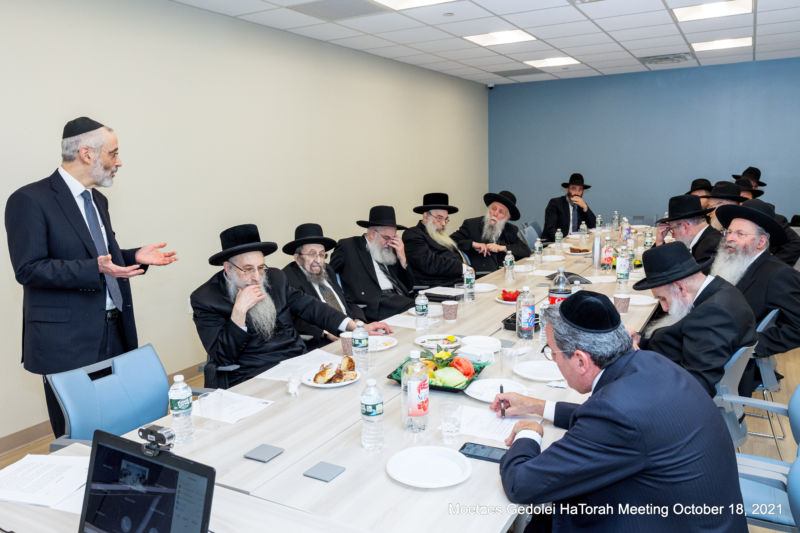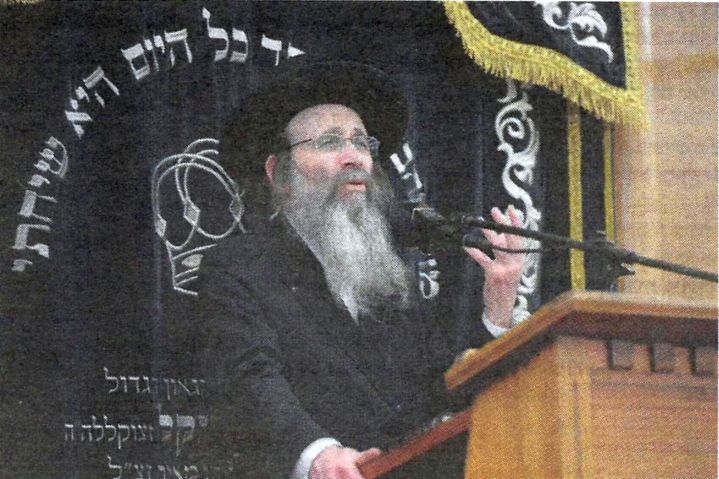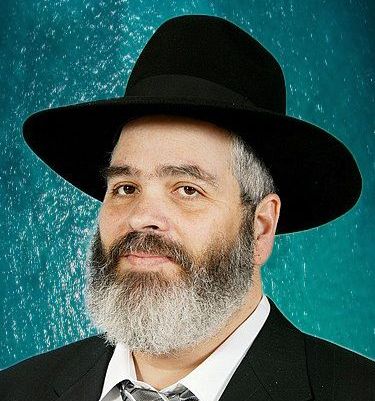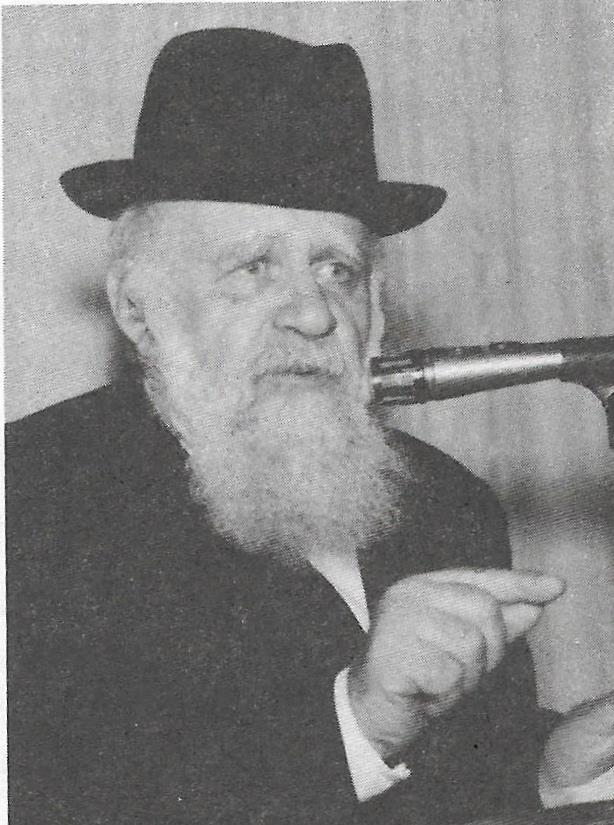  |
|
| ||||||
This Google Custom Search looks only in this website. The Full Agudah Convention Program
The following is the full announced program for the Aguda Concention taking place Thursday November 30 until Sunday December 3. (That is, now!)
17 Kislev 5784
To our dear brothers and sisters:
We are all still in great shock and mourning over the loss of so many of our brethren in Eretz Yisroel. Hashem yikom damam - may Hashem avenge their blood! We cry for their families, and for the many who suffered injury in the Shemini Atzeres Simchas Torah attack, may they have a complete and speedy recovery. We daven for the safety of all members of the Am Hakodesh in the Eretz Hakodesh, and particularly the soldiers who are in the front lines of the war, whether on the southern border of Eretz Yisroel or on the north. We feel the pain of the numerous individuals and families who have been displaced from their homes and suffered severe losses. And while we welcome the release of some of the
hostages, we can know no rest until every one of them is freed from the clutches of their barbaric captors.
Across the globe, we are horrified by the alarming explosion of antisemitism all across Europe and even in the Malchus Shel Chesed of the United States. Most of the targets of anti-Jewish hate are anshei shlomeinu, fellow members of the Torah community. And it is particularly troubling that so many of the younger generation, in college campuses across America, have embraced the agenda of our greatest enemies.
Clearly, HaKodosh Boruch Hu is sending us a message. We cannot be complacent in the face of so many tzoros. We must ask ourselves mah Hashem Elokeinu shoeil mei'imanu - What does Hashem want from us? Nachpeso drocheinu venachkora venashuva ad Hashem - We must make serious introspection of our ways and return to Hashem!
Let us focus on three broad areas: (1) Limud HaTorah, (2) Tefillah, and (3) Tznius.
This being a difficult period obviously needs no elaboration. We are living in troubled times. The Mashgiach of Yeshivas Mir, HaRav Binyomin Finkel expands:
Eretz Yisroel has experienced several wars during these past years. As a child, I lived through the Six Day War; all of us in Jerusalem were terrified while the central part of the country was calm. Then there were periods when things were hot in the north while the south was quiet, and others when the situation was reversed. Now, however, we are all embroiled in war and nothing is quiet; all parts of the country are under enemy fire.
We are experiencing hard times, times of dread. Our people are suffering, with no one knowing what lies in the future. Notwithstanding. we feel a closeness to Hashem for He is showing us very palpably that He wants us to return to Him; we are driven to be close to Him.
The Chofetz Chaim offered us fortifying words for this situation through the words of the Medrash: Rav Huna, in the name of Rav Yosef, said: Hashem champions the oppressed one, the pursued. If a tzaddik pursues another tzaddik, He will aid the pursued one. Even if a tzaddik pursues a wicked one, He will come to the rescue of the latter. Hashem always seeks to help the one who is pursued...
What must we do?
The Left (including Benny Ganz who joined the government) has been making a big fuss over the passage of the country's budget since it includes moneys that were allocated according to arrangements made in forming the government coalition. This fuss is just politics as usual, even in time of war, to attack the right, Bibi and the chareidim.
A billion shekel a day — this is the direct cost of the war according to the estimate of the experts. Fifty-one days of war are behind us, amounting to fifty-one billion shekel of war expenses, aside from the tens of billions which will be added to cover reparations of damages and settle accounts with all those who have incurred such losses.
But what seems to bother the Israeli media and Benny Ganz, the nationalist, is the coalition funds, adding up to a mere billion plus, a portion of which is allocated to the chareidim. Small talk compared to the enormous cost of the war, but money which is worth several votes to the new chareidi enemy. This clause of the budget awaiting government approval irks Benny Ganz, who threatens to leave.
This article appeared in print in 1992, that is, 31 years ago. HaRav Wasserman was niftar on 2 Cheshvan, 5753 (October 29, 1992). He was about 93 years old.
Part 2
Rav Nachman Bulman, who knew HaRav Elazar Simcha Wasserman for almost fifty years, formulated what may be the central question:
"He wasn't a person who was looking for "madregas," but he had them. That's what a Yid is supposed to be. If you were to ask anybody who got to know Reb Simcha, `What was he?' the answer was not obvious. Certainly everybody knows that he was a talmid chochom, and an ehrlicher Yid, and a yirei shomayim, a baal midos tovos, a baal chesed godol and a true educator. And he was never inconsistent with his emes. But, with all this, it could still be asked, `What was he?'"
The Years In Eretz Yisroel
The enormous dedication and self-sacrifice that all this required did not stop even in old age. In 1979, he and his rebbetzin were finally able to fulfill their life's dream of living in Eretz Yisroel. They moved into the neighborhood of Mattersdorf, which is a continuation of the Torah neighborhoods of Ezras Torah, Unsdorf, and Itri. It is a neighborhood full of children.
* * *
Outstanding Articles From Our Archives
IN- DEPTH FEATURES
by A. Bernstein
To this day, writers and scholars continue to dispute the necessity of dropping the atom bomb on Hiroshima and Nagasaki to induce the Japanese government - determined to defend "the honor of the Japanese Empire" to the end - to surrender. The debate was renewed last summer, the sixtieth anniversary of the dropping of the bombs. "Victory or death," was the Japanese' motto, but did hundreds of thousands of Japanese citizens really have to die?
Everything that transpires in the world is primarily for the sake of Am Yisroel. As the world, last summer, remembered the events that interested it, we thought it appropriate to focus our attention on the Torah world in those days. This article focuses on what the end of the war and the Japanese occupation of China meant for the 25,000 Jewish refugees sojourning in China during this period, who did not know when and how the war and the deadly bombing would come to an end. The slogan in the street was, "Down to the last Japanese soldier."
The following is a description of those harrowing times and the horrors of war chronicled in Volume 3 of Hazericha Bepa'asei Kedem.
*
While the yeshiva students of Shanghai were waging the war of Torah in the beis medrash night and day, battles between Japan and the US raged nearby, reaching their height in the spring and summer of 5705 (1945).
At the beginning of Iyar (late April) the fall of Nazi Germany was complete. The Germans had announced their unconditional surrender to the Allies, bringing the war in Europe to an end. The roar of artillery fire stopped, and quiet settled on the war-ravaged continent soaked with Jewish blood.
Meanwhile, in the East, the fighting intensified. The Japanese, in the spirit of their ancient tradition of "victory or death," continued to wage battle with dogged determination, resisting the Americans with the last of their strength and contemptuously rejecting every proposal for surrender.
IN-DEPTH FEATURES
by Binyamin Y. Rabinowitz
This old article takes on new relevance in the context of the previous extended controversy about judicial reform in Israel. It provides historical background for the recent effort.
In this interview with Yated Ne'eman, veteran rabbinical pleader Rabbi Tzvi Weinman, who has vast legal experience in protecting our fundamental values and veteran chareidi lawyer Rabbi Refael Shtub, also an active player in many such campaigns, discuss chareidi Jewry's relationship with the supposedly impartial High Court of Justice (Bagatz) and the many fierce wars of words that have raged as the result of its rulings.
Part One
Looking Back on an Era
The massive rally held in Yerushalayim to protest the extent of the power wielded by the High Court was of unprecedented size. It will forever remain seared into the memories of the hundreds of thousands of participants and the country's population in general. There were even irreligious citizens who did not conceal their personal identification with the powerful protest that was voiced against the "judicial dictatorship" of the "regime of the High Court."
Over five years later, it can be said unequivocally that the rally had an effect. The Court at last began to show some degree of understanding of the limitations of power. Its president, the standard bearer and high priest of judicial objectivity, will shortly be ending his ten-year period of office, but the effects of his tenure will certainly continue to be felt in the future. To help us try to evaluate the High Court's long years of power, we consulted two men with vast experience of attempting to curb its excesses.
Rabbi Tzvi Weinman is a rabbinical pleader who has been deeply involved in many of the battles over our nation's spiritual treasures. He led one of the best-known struggles in our community's history, over Chief Rabbi Goren's permitting mamzerim to marry, and has served as the emissary of gedolei Yisroel in other similar situations.
His colleague Rabbi Refael Shtub has also played an active role in many of our community's public campaigns. He has led many difficult and bitter battles - over adoption, numerous times over the desecration of graves, over postmortem examinations, over the interference of government departments in the chareidi educational system and over an array of cases dealing with hekdeshos. He assists communal activists, as well as several organizations in their various struggles, and served as legal advisor to Degel Hatorah at its inception.
The Value of Religious Legislation
YN: In your opinion, involved as you are with legal matters on a daily basis, whether in courts of law or in botei din, has the whole concept of religious legislation been beneficial? All these laws must clear the sizable hurdle of the review of the High Court of Justice and receive its seal of legal approval, in which process they are subjected to the judges' own, biased interpretations. Under such conditions, is there any point at all in passing this kind of law, fighting for it tooth and nail, only to have the Bagatz ultimately disembowel it?
Weinman: Let me tell you something that happened to me. When they wanted to amend the Autopsy Law, I sat on a committee together with Judges Kister and Shereshevsky. After we finished preparing the law, it was decided to take the draft in to the Gerrer Rebbe zt'l. I went to him with the full text, which filled six or seven sides - I remember it as though it happened yesterday. It took him maybe a minute-and-a-half [to read]. He finished reading and made his comments. It would be superfluous to enumerate the practical benefits of the law. There have been laws that were well worth the effort put into them and have
Home and Family
by Sara Gutfreund
The Green Marble
For many years, my husband and I stayed in our large, family house even after the children had married and moved away. We thought that it made sense to keep it, since the children and grandchildren would come home often for Shabbos and Yom Tov. Even though it was difficult to maintain, I was happy to stay in our home. This is the same home where all our children were born and where we have shared both joys and sorrows. Each room had a special place in my heart.
This story really begins after my husband passed away. He had been sick for some time, but whenever my children tried to speak to me about where I would live "after," I didn't want to hear of it. At first, I just kept insisting that their father would pull through. I just couldn't accept that he was dying. And after he passed away, I didn't want to leave the house. All of my children tried to persuade me that the house was far too big for just one person and it had too many memories of my husband. But I told them that I wanted those memories, and it would hurt too much to part with our home.
Everything changed one day when I tripped over a step and broke my hip. Suddenly, I was dependent on my children for everything. At first, I moved into one of my daughter's apartments, but it was small and the grandchildren were a little noisy to be around twenty-four hours a day. I discussed the situation with my children, and I reluctantly agreed that it didn't make sense for me to live in the house alone, anymore. We found a nice assisted living facility nearby, and my children said that they would work together to pack my things. As soon as they could, they would put the house up for sale.
I'm not telling this story to criticize my children because I know that they had the best of intentions in the saga that follows. I'm telling my story in order to warn others, if they should come across a similar situation. I was never a very materialistic person and though many of my possessions had sentimental meaning to me, I knew that they wouldn't be able to fit into my new one-bedroom apartment. But I did ask my children to please bring me all of my personal things so I could go through them myself. I assumed that they would understand that I meant all of my things, but unfortunately, some things in my drawers just didn't look worth saving to them. It really was my fault that I forgot to tell them about the green marble.
|
||||||




.jpg)




